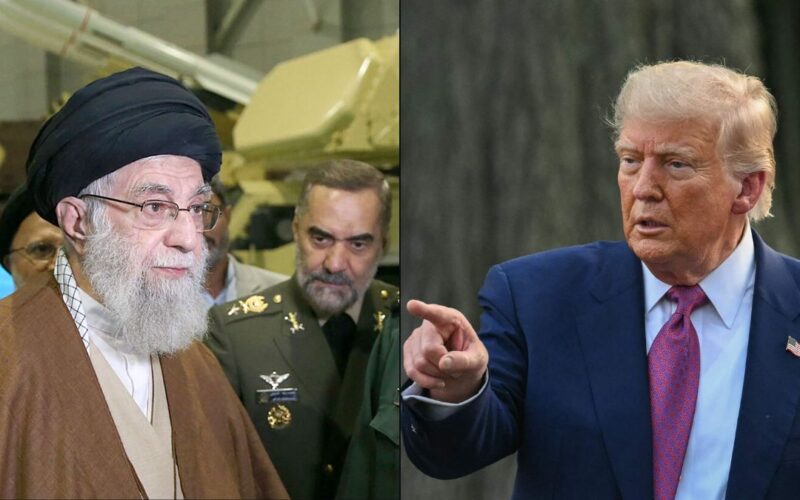Tehran/Washington (National Times): Iran issued a stark warning to the United States on Saturday, declaring that all American personnel and citizens in West Asia are now considered targets, following U.S. airstrikes on three key Iranian nuclear facilities, Fordow, Natanz, and Isfahan.
In a broadcast on Iranian state television, Tehran condemned the attacks as a violation of its sovereignty and accused Washington of committing “a crime against Iran.” The message, aimed directly at U.S. President Donald Trump, stated: “Mr. President of the United States, you started it — and we will end it.” The segment aired alongside graphics highlighting U.S. military bases across the region.
This fiery response followed President Trump’s announcement on Truth Social that the U.S. military had carried out “a very successful attack” on the three Iranian nuclear sites, singling out the heavily fortified Fordow uranium enrichment facility. “A full payload of bombs was dropped on the primary site,” Trump said, calling the strikes “historic” for the United States, Israel, and global security.
Iranian reports suggest that personnel at the affected sites were evacuated moments before the strikes hit. Iranian officials have since confirmed that the Fordow, Natanz, and Isfahan facilities were indeed targeted, although the full extent of the damage remains unclear.
Israel on High Alert
Following the U.S. action, Israel raised its national alert level, suspending non-essential operations and bolstering security around sensitive locations. The move comes amid fears of potential Iranian retaliation against American and Israeli interests.
Meanwhile, the U.S. embassy in Iraq has heightened its security protocols amid reports of a growing threat to American installations. Embassy officials have urged Iran not to escalate further, while President Trump issued a brief but blunt warning: “Iran should stop immediately, otherwise they’ll get hit again.”
Week of Escalation
Saturday’s strikes mark a new peak in the volatile conflict between Iran and Israel, which has intensified since June 13, when Israel launched an aerial campaign alleging Iran was nearing the threshold of developing nuclear weapons. In its latest offensive, Israel claimed to have eliminated three more senior Iranian commanders.
Iranian President Masoud Pezeshkian responded with defiance, vowing that Tehran would continue its nuclear program “under any circumstances” and warning of “even more devastating retaliation” if Israeli airstrikes persist.
Regional Ramifications
The crisis is already drawing in regional actors. Yemen’s Houthi rebels, aligned with Iran, threatened to resume attacks on U.S. vessels in the Red Sea, jeopardizing a recently established ceasefire. The possibility of a broader regional conflict now looms, with Washington and Tehran locked in a dangerous tit-for-tat that shows no signs of slowing down.
As both nations dig in, the international community watches with growing alarm, fearing that the fallout from this confrontation could destabilize the region in ways not seen in decades.

